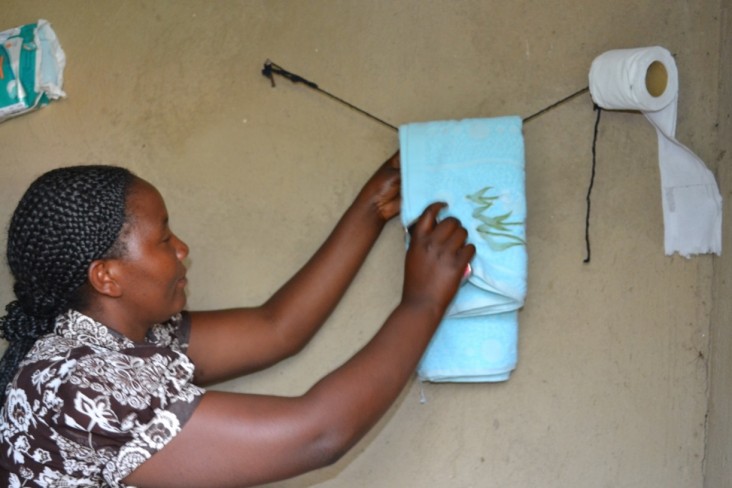
Rwanda has made great strides in expanding access to education. Enrollment is up, repetition and dropout rates are down, and more children are finishing primary school.
Thanks to Rwanda's award-winning Nine Year Basic Education program, six years of primary and three years of secondary education are free and compulsory for all Rwandans. What’s more, in January 2014, UNESCO placed Rwanda in the top three countries for reducing out-of-school youth.
Despite this accomplishment, absenteeism for girls remains a challenge.
"On average, a girl would come to school for two weeks in a month," said Xavier Mbonigaba, the head teacher of Gihinga School in Rwanda's Bugesera district. "This was greatly affecting their performance."
According to school officials and parents, girls' menstrual periods are a main cause. "[They] dropped out of school because they lacked sanitary pads and, more so, privacy," said Agnes Twagiramariya, a Gihinga School parent and vice president of the school's parent-teacher committee.
After attending training by USAID, 283 parent-teacher committees made action plans including initiatives to help girls stay in school. Gihinga's committee assigned female teachers to be in charge of girls' welfare and planned for the construction of a separate girls' washroom and the provision of sanitary pads and other items.
Teachers Leonice Nyirabaruma and Agathe Nyirasafari also hold regular "girls' evenings"—a time to discuss reproductive health and other pressing issues that affect girls.
"[Girls] are now aware of what they can do in times of trouble and whom to talk to without being afraid," said Nyirabaruma. "Girls are now confident at school."
At Rugando Primary School, parents volunteered to construct a washroom for girls, while the school organized the provision of items such as sanitary pads, water, soap, basins and towels.
"The number of girls regularly attending school has increased," said Joseph Sibomana, who is in charge of academics at the school.
As more parent-teacher committees roll out across the country and learn from schools like Rugando, more girls will benefit from similar initiatives.
Support for parent-teacher committees is part of USAID's five-year Literacy, Language, and Learning (L3) Initiative implemented by the Education Development Center, which began in 2011. The initiative’s consortium member, Concern Worldwide-Rwanda, trains committees as part of L3's overall effort to improve early-grade literacy and numeracy skills of Rwandan children.







Comment
Make a general inquiry or suggest an improvement.